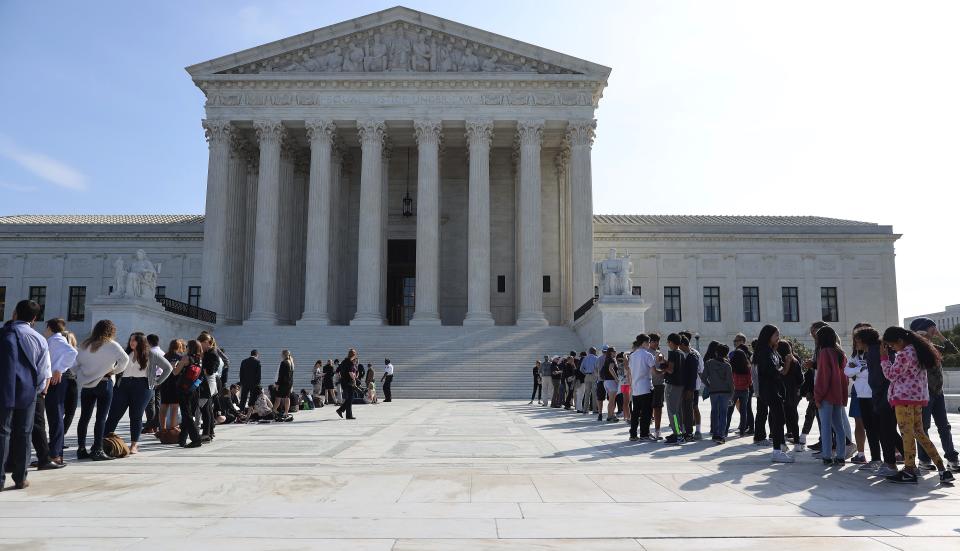Supreme Court again postpones oral arguments due to coronavirus pandemic
WASHINGTON – The Supreme Court on Friday postponed oral arguments scheduled for later this month because of the coronavirus pandemic, marking the second consecutive month it has done so.
With oral arguments slated to wrap up for the 2019 term at the end of April, the justices now must decide how to handle the 20 cases that will not have been heard in open court.
"The court will consider rescheduling some cases from the March and April sessions before the end of the term, if circumstances permit in light of public health and safety guidance at that time," the court's statement said. "The court will consider a range of scheduling options and other alternatives if arguments cannot be held in the courtroom before the end of the term."
When the earlier postponement was announced in March, it marked the first such delay of oral arguments before the high court since the Spanish flu pandemic of 1918.

The justices had several major cases scheduled for April, including:
• Challenges from Washington State and Colorado on whether the 538 members of the Electoral College must vote for their states' winning presidential candidates.
• An effort by the Trump administration to let employers and universities with religious or moral objections deny women insurance coverage for contraceptives.
Among the oral arguments postponed last month were major battles over subpoenas for President Donald Trump's tax returns and financial records from congressional committees and New York prosecutors. Trump's lawyers want the documents to remain shielded.
The high court clings to tradition, so it has not gone the way of many other state and federal courts by using teleconferences or offering public access through video streaming. The justices could decide to use teleconferences in some cases now, or they could delay oral arguments until the fall or decide cases from written briefs only.
All nine justices participated in the court's weekly private conference Friday morning, but it was conducted by phone, as it has been in recent weeks. Six of the nine justices are at least 65 years old, led by Associate Justice Ruth Bader Ginsburg, 87, who has had four bouts of cancer in the past two decades.
This article originally appeared on USA TODAY: Coronavirus: Supreme Court postpones oral arguments for second month

